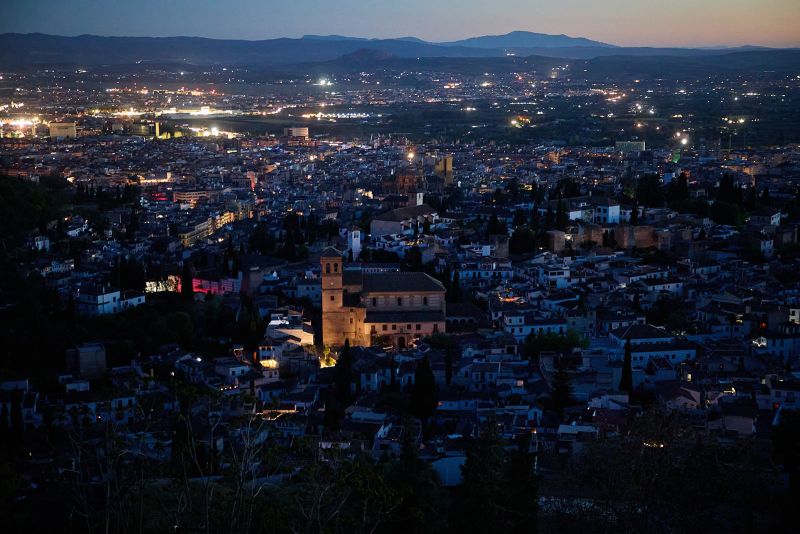Spain’s government said Tuesday that the massive April power outage across Spain and Portugal that left tens of millions of people disconnected in seconds was caused by technical and planning errors that left the grid unable to handle a surge in voltage.
Ecological Transition Minister Sara Aagesen, who manages the nation’s energy policy, told reporters that a voltage surge led to small grid failures, mainly in the south of Spain, which then cascaded to larger ones and brought the system down in the two Iberian Peninsula nations.
She ruled out that the failure was due to a cyberattack.
The outage began shortly after noon on April 28 in Spain and lasted through nightfall, disrupting businesses, transit systems, cellular networks, internet connectivity and other critical infrastructure. Spain lost 15 gigawatts of electricity — or about 60% of its supply. Portugal, whose grid is connected to Spain’s, also went down. Only the countries’ island territories were spared.
“All of this happened in 12 seconds, with most of the power loss happening in just five seconds,” Aagesen said.
Several technical causes contributed to the event, including “poor planning” by Spain’s grid operator Red Eléctrica, which didn’t find a replacement for one power plant that was supposed to help balance power fluctuations, the minister said. She also said that some power plants that utilities shut off preventively when the disruptions started could have stayed online to help manage the system.
Power was fully restored by the early hours of the following day.
The government’s report will be released later on Tuesday – 49 days after the event – and included analysis from Spain’s national security agencies, which concluded, according to the minister, there were no indications of cyber-sabotage by foreign actors.
The government had previously narrowed down the source of the outage to three power plants that tripped in southern Spain.
In the weeks following the blackout, citizens and experts were left wondering what triggered the event in a region not known for power cuts. The outage ignited a fierce debate about whether Spain’s high levels of renewable power and not enough energy generated from nuclear or gas-fired power plants had something to do with the grid failing, which the government has repeatedly denied.
Spain is at the forefront of Europe’s transition to renewable energy, having generated nearly 57% of its electricity in 2024 from renewable energy sources like wind, hydropower and solar. The country is also phasing out its nuclear plants.
Spanish Prime Minister Pedro Sánchez pushed back against such speculation and defended the country’s rapid ramping up of renewables. He asked for patience and said that his government would not “deviate a single millimeter” from its energy transition plans, which include a goal of generating 81% of its electricity from renewable sources by 2030.

























